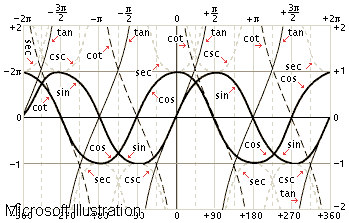 The so-called Monroe doctrine (Monroe doctrine in English) owes its name to the president of the United States James Monroe and was made known during his mandate in 1823. The fundamental idea of this doctrine can be summarized in a historical phrase that has been famous fact: "America for the Americans." The purpose of this statement was intended to convey a desire on the part of the President of the United States: that the American continent should not be subjected to European colonialism but that all the countries of the continent have full independence. However, this claim concealed the intention of the United States to decisively influence the destiny of the American nations and, therefore, the true spirit of the Monroe doctrine was to legitimize the influence of the United States throughout the continent.
The so-called Monroe doctrine (Monroe doctrine in English) owes its name to the president of the United States James Monroe and was made known during his mandate in 1823. The fundamental idea of this doctrine can be summarized in a historical phrase that has been famous fact: "America for the Americans." The purpose of this statement was intended to convey a desire on the part of the President of the United States: that the American continent should not be subjected to European colonialism but that all the countries of the continent have full independence. However, this claim concealed the intention of the United States to decisively influence the destiny of the American nations and, therefore, the true spirit of the Monroe doctrine was to legitimize the influence of the United States throughout the continent.
From the criteria of the Monroe doctrine, the United States has the political legitimacy to occupy the territories of other peoples. This legitimation is supported by the belief that Americans have a moral duty to watch over the designs of God, who chose the United States as a nation to promote the principles of freedom and self-government. Consequently, the idea that the United States has a mission entrusted by God led to the concept of "Manifest Destiny" which, later, ended up being embodied in the Monroe Doctrine.
The origin of the Monroe doctrine
In 1823 most of the American nations had won their independence from Spain but there was fear that other European nations would try to subdue them again. In this way, President Monroe's proposal initially represented a brake on European colonialism. The United States was beginning to present itself as a great world power and the Monroe doctrine served as an alibi to implement a policy of expansionism. Thus, in 1823 the Mexican government opened the Texas border to allow the entry of American settlers and, as a consequence, twenty-five years later Mexico lost Texas, New Mexico, Utah, part of Nevada, part of Colorado and California to the benefit of The United States, which, in this way, specified the true intentions of the Monroe Doctrine.
The expansionism of the United States
 With the occupation of a large part of the Mexican territory, the United States did nothing more than initiate a stage of expansionism throughout the Americas. Some of the episodes inspired by the Monroe doctrine and the idea of Manifest Destiny are the following:
With the occupation of a large part of the Mexican territory, the United States did nothing more than initiate a stage of expansionism throughout the Americas. Some of the episodes inspired by the Monroe doctrine and the idea of Manifest Destiny are the following:
- In 1867 the United States bought the territory of Alaska from Russia.
- In 1898 Puerto Rico became part of the United States after the war between Spain and the United States.
- In 1898 the United States annexed Hawaii.
- Apart from the occupation of new territories, throughout history the United States has intervened militarily in several American nations, as is the case of temporary occupations in El Salvador, Honduras and Nicaragua. On the other hand, US interests shifted in relation to management rights over the Panama Canal or in the case of the overthrow of the democratic government of Guatemala in 1954.









